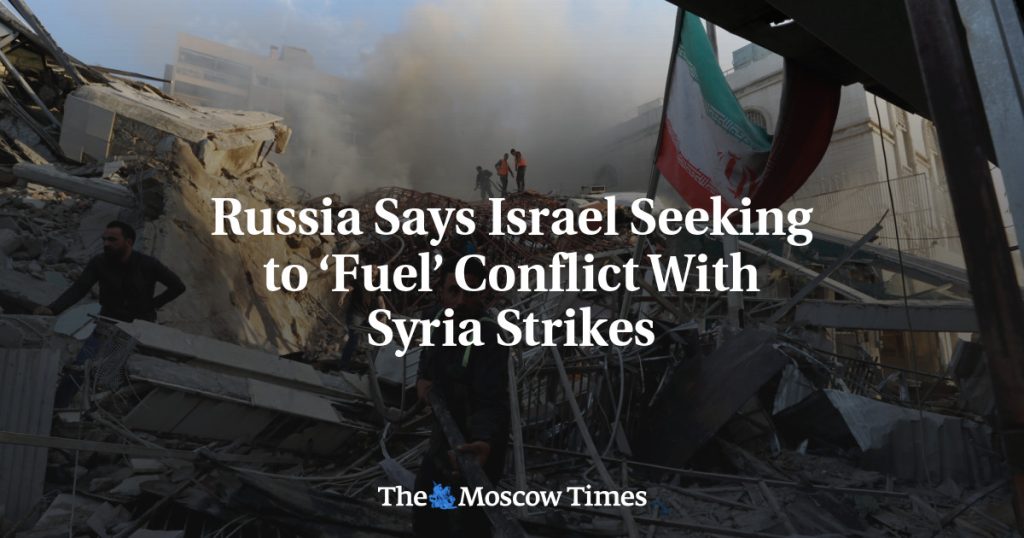Russia accused Israel of fueling conflict in the Middle East by conducting a strike on Iran’s consulate in Syria, resulting in the death of at least 13 people. Moscow’s United Nations envoy, Vasily Nebenzia, labeled the strike a “flagrant violation” of Syria’s sovereignty and criticized Israel for its aggressive actions aimed at escalating the conflict. Iran has vowed to retaliate for the attack, while Israel has not commented on the incident.
During a Security Council meeting, Algeria’s UN ambassador, Amar Bendjama, stated that the purpose of Israel’s strike was to respond to international pressures by escalating the conflict in the region, ultimately prolonging the killing of Palestinians. He accused Israel of deliberately trying to draw the entire region into conflict for internal political reasons. Despite condemning the attack as a violation of diplomatic property, most members of the council did not specifically mention Israel in their statements.
The tense situation in the Middle East, exacerbated by the strike on Iran’s consulate in Syria, has heightened tensions between Israel and Iran. The death of senior members of the Revolutionary Guards in the attack has prompted Tehran to threaten retaliation against Israel. The lack of a statement from Israel regarding the incident adds further uncertainty to the situation, with potential consequences for regional stability and security.
Russia’s criticism of Israel for its actions in Syria reflects the ongoing geopolitical tensions in the region, with various countries jostling for influence and power. Moscow’s condemnation of Israel’s strike on Iran’s consulate highlights the complex web of alliances and rivalries in the Middle East, where any escalation has the potential to destabilize the entire region. The involvement of other countries, such as Algeria, in the Security Council meeting demonstrates the international community’s concern about the situation.
The accusations from Russia and Algeria against Israel underscore the deep-rooted conflicts and competing interests in the Middle East, where regional powers use proxy wars and military actions to advance their agendas. The strike on Iran’s consulate in Syria is just one example of the ongoing violence and insecurity that plague the region, with the potential for further escalation and destabilization. The international community’s condemnation of the attack reflects the urgency of finding a peaceful resolution to the conflicts in the Middle East.
In conclusion, the accusations made by Russia and Algeria against Israel for fueling conflict in the Middle East through the strike on Iran’s consulate in Syria highlight the complex geopolitical dynamics at play in the region. The situation underscores the fragility of the Middle East, where any escalation can have far-reaching consequences for regional stability and security. As tensions continue to simmer in the region, it remains crucial for all parties involved to prioritize dialogue and diplomacy in order to prevent further violence and bloodshed.


